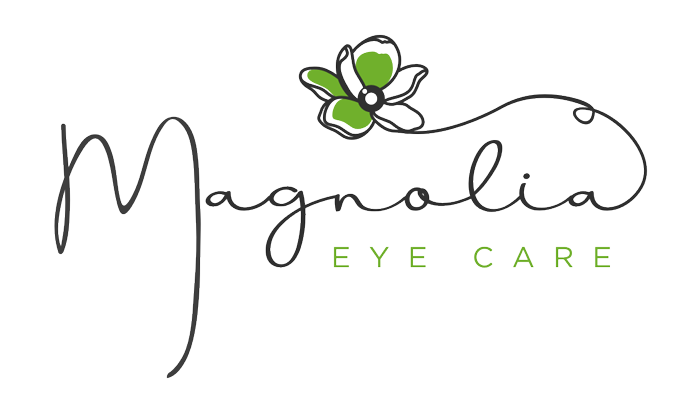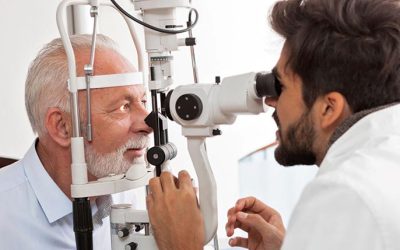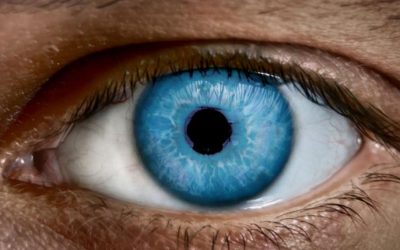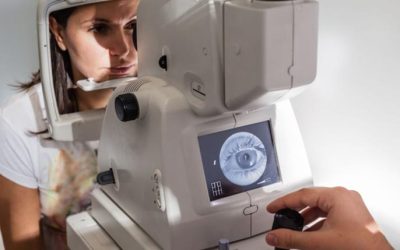Celebrating the Rise of Women in Optometry
In March, we celebrate Women’s History Month. And we’re proud to say that optometry is one place women are making history. Did you know that optometry began as a predominantly male profession in the late 1800s, but today, women make up nearly half of all...
10 Ways To Minimize The Progression of Low Vision
In February, we recognize Low Vision Awareness Month and the millions of Americans who live with the condition. Low vision is a term used to describe a visual impairment that cannot be corrected by standard glasses, contact lenses, medication, or surgery. It often...
9 Strategies to Adapt to Life With Low Vision
February is Low Vision Awareness Month, a time to increase awareness of this condition which affects millions of Americans each day. Low vision is the term for a visual impairment that cannot be corrected by standard glasses, contact lenses, medication, or surgery....
3 Simple Metaphors To Explain Glaucoma
January is Glaucoma Awareness Month. It is a time to increase awareness of this group of diseases that are known as the “silent thief of sight” because they are painless and symptom-free. Glaucoma cannot be prevented, and though there are treatments, there...
How Your Eye Doctor Diagnoses Glaucoma
Happy 2023! As you start the new year, it’s a common practice to assess what you’re most thankful for and consider goals and resolutions to guide you in the coming 12 months. If you’re fortunate enough to have healthy eyes and good vision, please...
8 Ways To Protect Your Gift of Sight This Season
Optometrists often receive “eye-themed” cards and gifts for holidays and birthdays — and we love it. In December, we almost always get something that mentions the movie A Christmas Story. You may remember the film – it’s the one where...
Why It’s Time To Check Your Flex Spending Account Balance
Check your calendar: We’ll welcome 2023 in just a few short weeks. It’s time to ask yourself two questions: What do you need to get done before the end of December? What action steps can you take now to make your new year better? It’s Time To Use...
What is Diabetic Retinopathy?
The US Centers for Disease Control estimate that there are 37.3 million Americans living with diabetes. That’s about 10% of our nation’s population! What’s worse: About one in five of those people are not aware that they have this dangerous chronic...
How Does Diabetes Impact Your Eyes?
It’s November: Time to shine a light on how diabetes impacts your eyes during Diabetic Eye Disease Awareness Month. Did you know that diabetes often affects a patient’s vision? And that uncontrolled diabetes is a top cause of blindness for people aged 74...
What are Eye Floaters?
What are Eye Floaters? If you haven’t yet experienced floaters in the eye, it’s understandable that you may be puzzled about what they are and what they look like. However, as you age, floaters become more common. You will get used to seeing an oddly...
Why Retinal Detachment is an Eyecare Emergency
Why Retinal Detachment is an Eyecare Emergency Your retina is the extremely light-sensitive nerve tissue at the back of your eye that enables your eye to focus and see. The retina captures and processes incoming light and images, then passes that information to the...
Is Your Student At Risk for Progressive Myopia?
In our offices and around the country, optometrists are seeing a significant—and disturbing—new trend: more and more patients are presenting with myopia, or nearsightedness. People with myopia can see close-up objects clearly, but objects at a distance...
7 Ways College Students Can Protect Their Eye Health
Are you the parent of a college student or a new college student yourself? It’s a big responsibility! College days are full of excitement and learning. Sometimes you learn in a classroom, and sometimes you learn things from friends in a dorm or other social...
When—and Why—Your Child Needs A Comprehensive Eye Exam
Vision is one of the most precious of our five senses — its impact on our lives can’t be overstated. Up to 80% of the knowledge we learn and the information we perceive comes in through our eyes. That’s why protecting your vision—and the vision...
Why Parents Must Prioritize Back-To-School Eye Exams For School-Age Kids
August is Vision and Learning Month in the U.S. The goal of observing this vital link between vision and how we learn serves to enhance awareness among both parents and educators about how often undiagnosed or misdiagnosed visual problems impact a...
9 Ways To Protect Eyes from UV Damage
As we continue observing National UV Safety Month throughout July, we want to offer smart strategies to help you minimize the exposure your eyes have to harmful UV rays. Minimizing UV ray exposure can help maintain your healthy vision for as long as possible. UV ray...
Why It’s Smart To Protect Your Eyes From the Sun
It’s the dog days of summer! If it’s not hot enough for you in July, it never will be. July is National UV Safety Awareness Month. With more than 14 hours of sunlight each day, it’s a great opportunity to learn why you need to protect your eyes from...
7 Comments From Post-Procedure Cataract Patients
In our practice, we see a lot of patients in their 60s, 70s, and 80s. Of the eye problems and diseases this age group faces—including glaucoma, macular degeneration, diabetic eye disease, and other inoperable conditions—cataracts are the one eye condition...


















